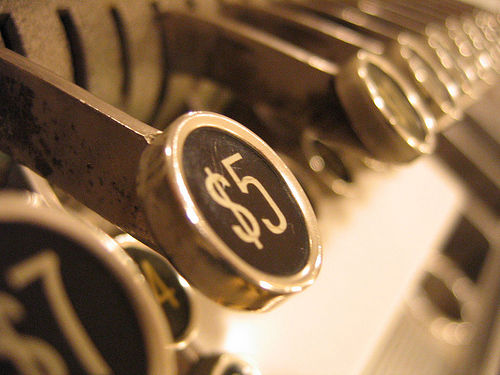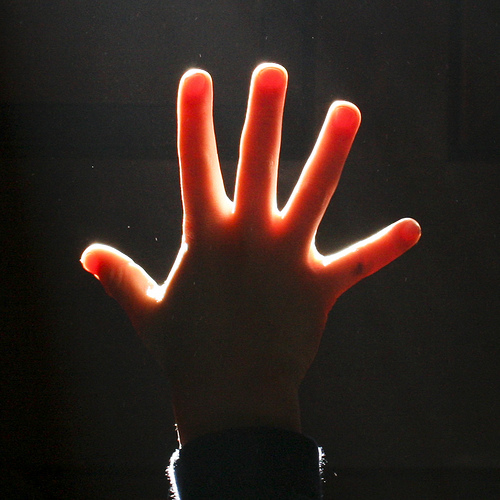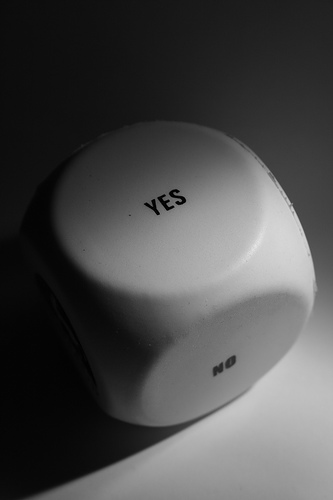How to Publish a Book: Your 3 Options
Today’s guest post is by a young author who requested her name be withheld.
Like it or not, the publishing world has done a great deal of changing over the last few decades.
Not so long ago, to become a published author you’d have to snail-mail your beautiful novel to a literary agency or a publisher, then wait months and months for one of three results: an acceptance (yay!), a rejection (more common), or a no-reply (very common). This, of course, is after you’ve completed the painstaking process of actually writing the book in the first place.
The advent of email has made the above process slightly quicker and less maddening, but, to borrow from Suzanne Collins, the odds have become and less and less in your favor as a result. The ease of emailed submissions seems to have brought authors out of the woodwork. Suddenly, everybody and their mother is “writing the next best seller—you should read it when it’s published!”
WHEN, not IF. Wishful thinking: authors thrive on it.
In this author’s opinion, the overcrowding of the submissions pool is both a good thing and a bad thing. It’s good because there are so many amazing story ideas for publishers to choose from. It’s bad because there are so many amazing story ideas for publishers to choose from.
How do you make your work stand out among the thousands—nay, millions—of other submissions that are received each week? It takes the expression “needle in a haystack” to a whole other level, and, no, that’s not an exaggeration.
Well, good news: there are more options available to authors now than ever before. So, let’s dive in.
Self-Publishing
First, there’s self-publishing. Keep in mind that if you want a half-decent chance at becoming a best-selling author and maybe even score film/television deals, this probably isn’t the route you want to take. The lack of correct exposure and sales numbers make “global phenomenon” status a pipe dream.
I’m not saying it can’t happen, but it is highly unlikely. However, if your dream is to simply become a published author so that you can call yourself such and circulate a few copies among your family and friends, then self-publishing is something you should consider.
Many online platforms offer easy ways to do this, such as Kindle Direct Publishing, Barnes and Noble Press, and IngramSpark, and most of the time it’s free to self-publish. Aside from the small percentage that these platforms will take as compensation for using their services, there aren’t often start-up fees. Your earnings are entirely your own.
That said, there isn’t a great chance that your book will become the next The Girl on the Train or Wonder because there is nobody to help you out with marketing and distribution. The fact of the matter is that self-published authors often struggle to reach a wide audience.
However, some people who choose the self-publishing route aren’t in it for the glory; they’re only looking to put out a select number of copies, so fame and fortune isn’t always a huge concern for them.
Traditional Publishing
Next up, there’s traditional publishing, which is, as the name implies, the traditional way to become a published author. As with every method of publishing, there are pros and cons. Although, it is difficult to see the cons with traditional publishing, thanks to decades of preconceived notions that it is the only way to be published “for real.”
This simply isn’t the case. Not anymore.
To start, let’s talk money. Once an author is lucky enough to get a publishing deal with a traditional publisher, the publisher often pays the author an advance and covers the costs of marketing, publicity, and distribution. They almost always have good connections to the right people and media outlets, so these books tend to get the most attention.
This is only a good thing, because once the book begins to sell, the publisher will start to draw back on their investment in the book, as well as take a percentage of any future sales.
Additionally, if the author has contracted with a literary agent (which is common with traditional publishing), the agent will also take a percentage of all book sales (usually around 10–15%). Because of all this, a traditionally published author’s royalties are rather low at the end of the day. On the other hand, their books sometimes have a much better chance of becoming best sellers.
Another note of interest: traditionally published authors are often forced to give up their creative rights to their publisher. What that means is they don’t have much (if any) say in what their book cover will look like, what font is used, if certain elements of the story should be tweaked, etc. One reason so many authors are opting to self-publish or team up with a hybrid publisher is that traditional publishers are often laser-focused on specific trends—meaning that even if your book has merit, they won’t accept it if it doesn’t conform with what they are presently focused on.
Hybrid Publishing
Finally, let’s talk a bit about hybrid publishers. These publishers are not to be confused with vanity presses, which are subsidy based and don’t do much—if any at all—curation of the books they print.
Hybrid publishers draw a bit from both traditional and self-publishing models. As with traditional publishers, authors need to go through the process of submitting their books for consideration. If they are accepted, instead of being paid a traditional advance, the author is required to front the “starting cost” of publishing and marketing, as with self-publishing. Right off the bat, you might be thinking that sounds like a sour deal, and who in their right mind would go for that? Hear me out.
One of the key differences between hybrid and traditional publishing is the author’s royalties. With hybrid publishers, authors keep 100% of their royalties. They don’t pay their publisher anything aside from that “starting cost” I mentioned. Whereas a traditionally published author is essentially, once the book starts to sell, paying the publisher back the investment they made, a hybrid-published author has already paid that investment at the beginning.
Plus, people tend not to realize that traditionally published authors are often expected to pay for some of their own marketing/advertising along the way entirely out-of-pocket. Hybrid published authors do this as well.
Hybrid publishers are, at the end of the day, a publisher. They want your book to sell. In that sense they are like traditional publishers. Most of them also offer services such as proofreading/editing, typesetting, cover design, and sometimes minor marketing strategies. These services are either available at an extra cost or they’re included in the “starting costs,” but they are optional.
Hybrid publishers also usually allow the author to keep complete creative control. In that sense, they are similar to self-publishing. That, and the fact that most of the marketing/advertising must be done at the author’s expense and time.
If you’re reading this because you’ve written a book and are now looking into the world of publishing, then, first, congratulations. Writing a book is not easy, and you’ve done it. Second, do your research, for the love of all that is holy. If reading this article is part of your research, it’s a good start.
However, don’t stop here. Please educate yourself. At the end of the day, this is your beloved book that you poured your blood, sweat, and tears into. You want to make sure it’s in the right hands.












As an author of 17 books, I have traveled the Trade Publishing route, self-published and hybrid. In today’s climate, I am completely sold on the Indie route. I have creative control of my product and I get a much better percentage of royalties. But I would encourage all authors to make sure their books are professionally edited. A quality product is always a plus.
Hi – a very useful article. I went down the hybrid publishing route and so far have found it to be good. As well as the company’s own contacts we authors are asked for the names of companies etc., which we would like them to contact which they did.
What you describe above as ‘hybrid’ is what I know as vanity press.
The many professional authors I know who are hybrid authors are BOTH traditionally and self-published. That is, they may have a series in one genre that is traditionally published, but a series in a different genre that they publish themselves. They may have a book traditionally published in one country, but self-publish that same book in the rest of the world (e.g. Robert Sawyer).
They may have sold the print book rights to a traditional publisher, but kept the ebook rights to self-publish. (e.g. Jonas Saul)
They may also have had a book traditionally published, but now the rights for that book have reverted back to them, so they re-publish it themselves. (e.g. Diana Gabaldon’s shorts, originally written for anthologies or magazines)
None of the above hybrid authors went through a publisher where they pay to publish as you describe.
When they self-publish, they hire their own cover artist and editors. When they’re trad published, they may have hired an editor prior to submission, but the trad publisher provides additional editing.
Vanity publishers expect hopeful authors to pay up-front. They misrepresent the definition of ‘advance,’ suggesting it’s something authors pay them. They put together packages that are usually far more expensive than they should be for the services offered. Let hopeful authors beware and may they investigate carefully any publisher who wants them to pay to be published. It’s usually a sign of trouble. The Science Fiction and Fantasy Writers of America group keep an excellent list of such predatory publishers at their Writers Beware site. https://www.sfwa.org/other-resources/for-authors/writer-beware/
Your description of self-publishing at best patronising and at worst arrogant. A great many indie authors put a whole lot of work into putting themselves in the best possible place to sell their books, despite the barriers thrown up by the ‘traditional’ system.
Shame on you for treating them as hobbyists doing it to sell a few to friends and family.
BTW the comments form on this blog is not user-friendly for less than eagle-eyed readers.
I’m afraid your comments reveal how little you know about self-publishing.
Bella Forrest, Mark Dawson, Nick Stephenson, Lindsey Buroker, Andrea Pearson, Skye Warren, Kristin Ashley, Bella Andre, Marie Force, Craig Martendale, Lucy Score, Michael Anderle…
A tiny fraction of the seven-figure/year self-published authors.
Maybe you’ve never heard of them? That’s because self-pubs don’t need to be famous to pull in the big bucks. Don’t forget they get (say) 70% of the sale price, not 10%.
Then there’s the six-figure/year tier of whom there are thousands, heaven knows how many five-figure/year self-pub writers.
You say “highly unlikely” you’ll make money as a self-pub?
What? As opposed to the trad publishing lottery?
In that world you may *never* get published, no matter how good you are, because you weren’t lucky to hit the right agent/publisher at the right time with just the right book.
One of my closest friends is a traditionally published A-list literary crime thriller author – and it took him twenty years, three agents (and 23 novels) before he finally got a contract. Twenty years.
No, even a low-selling self-pub can make four figures/year easily. And get that income monthly, and know *exactly* how many books were sold on a daily basis. Unlike trad pub when you might get a cheque every few months and you have to trust they are paying you right.
Don’t pull the “can’t make money except in trad” trick – you only make decent money if you’re an A-lister.
Trad publishing don’t know anything about marketing any more. The world has changed and they’re dinosaurs. Self-pub are the mammals.
For a self-pub “Hey, that cover isn’t working, I’ll replace it.” Sales then double.
Trad pub? “What do you mean the cover isn’t working? It’s the *cover*.” Sales continue in slump.
But I’m sure you won’t believe it. And that’s fine, we’ll just be over here selling books directly to readers who love what we do.
(And BTW, so-called hybrid publishers are scams, they make their money out of the author, they couldn’t give a damn about the book.)